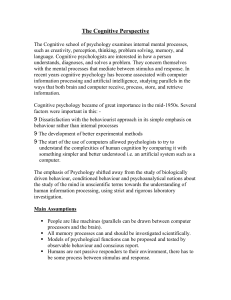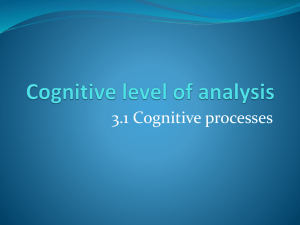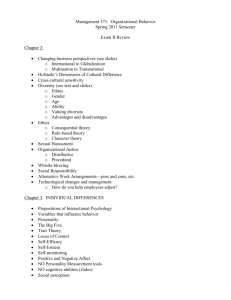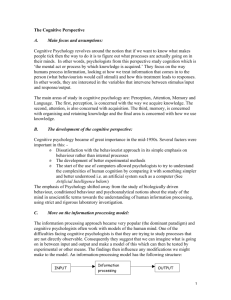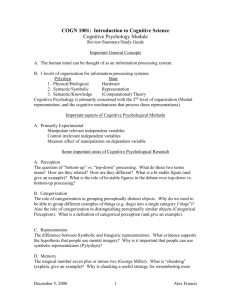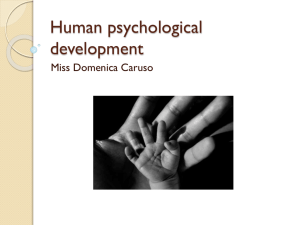Key concepts of the cognitive approach
advertisement
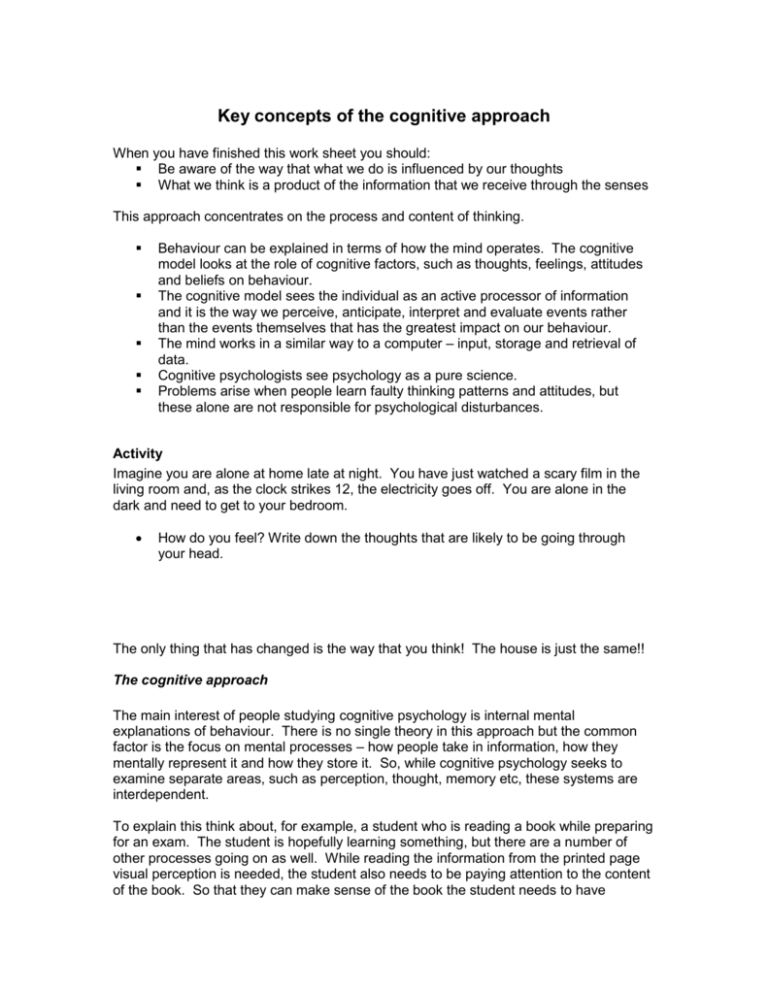
Key concepts of the cognitive approach When you have finished this work sheet you should: Be aware of the way that what we do is influenced by our thoughts What we think is a product of the information that we receive through the senses This approach concentrates on the process and content of thinking. Behaviour can be explained in terms of how the mind operates. The cognitive model looks at the role of cognitive factors, such as thoughts, feelings, attitudes and beliefs on behaviour. The cognitive model sees the individual as an active processor of information and it is the way we perceive, anticipate, interpret and evaluate events rather than the events themselves that has the greatest impact on our behaviour. The mind works in a similar way to a computer – input, storage and retrieval of data. Cognitive psychologists see psychology as a pure science. Problems arise when people learn faulty thinking patterns and attitudes, but these alone are not responsible for psychological disturbances. Activity Imagine you are alone at home late at night. You have just watched a scary film in the living room and, as the clock strikes 12, the electricity goes off. You are alone in the dark and need to get to your bedroom. How do you feel? Write down the thoughts that are likely to be going through your head. The only thing that has changed is the way that you think! The house is just the same!! The cognitive approach The main interest of people studying cognitive psychology is internal mental explanations of behaviour. There is no single theory in this approach but the common factor is the focus on mental processes – how people take in information, how they mentally represent it and how they store it. So, while cognitive psychology seeks to examine separate areas, such as perception, thought, memory etc, these systems are interdependent. To explain this think about, for example, a student who is reading a book while preparing for an exam. The student is hopefully learning something, but there are a number of other processes going on as well. While reading the information from the printed page visual perception is needed, the student also needs to be paying attention to the content of the book. So that they can make sense of the book the student needs to have substantial language skills and knowledge representations that are relevant to the material the book covers. There may also be an element of problem solving for the student to be able to relate the information in the book to previous knowledge. What the student learns will be dependent on the emotional state that they are in at the time of learning. The final outcome of the learning, the examination, is also a test of how effective the learning has been by showing how well the book has been remembered. All of these processes are the subject matter that are of interest to cognitive psychologists. Other worksheets will be looking in more depth at the different cognitive processes of memory, problem solving, perception and attention.
